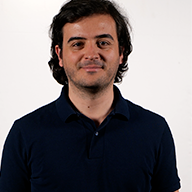Log in and enrol
Transport layer
Transport layer
How data travels across the Internet: from reliable transmission to flow control and key protocols
Fundamentals of Communication Networks
This MOOC is one of the MOOCs of the series titled “Fundamentals of Communication Network”, aimed at providing core knowledge on the functioning of the Internet and modern communication systems. The series covers all layers of the TCP/IP protocol stack, from application and transport to network and data link, addressing the key protocols, technologies, and performance principles that support global connectivity.
See the full seriesCourse description
The MOOC offers a basic introduction to Internet transport layer protocols, including Transport Control Protocol (TCP) and User Data Protocol (UDP). It explores the principles of reliable data transfer through Automatic repeat request (ARQ) protocols and flow control. The course is intended for students of Master of Science programmes and for anyone interested in the topic, either professionally or for personal development.
Total workload of the course: 10 hours
This MOOC is provided by Politecnico di Milano.
This MOOC was produced as part of the Edvance project – Digital Education Hub per la Cultura Digitale Avanzata. The project is funded by the European Union – Next Generation EU, Component 1, Investment 3.4 “Didattica e competenze universitarie avanzate".






Intended Learning Outcomes
At the end of this course, you will be able to:
- Identify the main components of the Internet transport layer
- Describe the main features of the User Data Protocol (UDP) transport protocol
- Identify the main components of Automatic repeat request (ARQ) protocols functionalities
- Describe the main features of the Transport Control Protocol (TCP) transport protocol
- Identify the main components of flow and error control in Transport Control Protocol (TCP)
ESCO: Information and communication technologies (ICTS)
ESCO: ICT communications protocols
Prerequisites
Completing the other MOOCs in the 'Fundamentals of Communication Networks' series is strongly encouraged to strengthen your preparation.
Activities
Over and above consulting the content, in the form of videos and other web-based resources, you will have the opportunity to discuss course topics and to share ideas with your peers in the Forum of this MOOC. The forum of this MOOC is freely accessible, and participation is not guided; you can use it to compare yourself with other participants, or to discuss course contents with them.
Section outline
-
-
-
Week 1 introduces the Internet transport layer and its core protocols. It explores the basic principles of the transport layer, focusing on its role in end-to-end communication. You'll learn to identify its key components and describe the main features of the User Data Protocol (UDP). The module also introduces the essential mechanisms of Automatic repeat request (ARQ) protocols for ensuring reliable transmission. The videos are followed by a final test to verify your understanding of the concepts presented.
-
Week 2 is dedicated to the study of the Transport Control Protocol (TCP), one of the Internet’s foundational protocols. It delves into the structure and functionalities of TCP, focusing on its reliability features. You’ll learn to describe the protocol’s key characteristics and identify how flow control, error control, and congestion control mechanisms operate within it. The videos are followed by a final test to verify your understanding of the concepts presented.
-
-
Video transcripts Folder
-
Bibliography Page
-
Additional materials Folder
-
Assessment
Your final grade for the course will be based on the results of your answers to the assessed quizzes. You have an unlimited number of attempts at each quiz, but you must wait 15 minutes before you can try again. You will have successfully completed the course if you score 60% (or higher) in each one of the assessed quizzes. The maximum score possible for each quiz is given at the beginning of the quiz. You can view your score in the quiz on your last attempt or on the 'Grades' page.
Certificate
You can achieve a certificate in the form of an Open Badge for this course, if you reach at least 60% of the total score in each one of the assessed quizzes and fill in the final survey.
Once you have completed the required tasks, you will be able to access ‘Get the Open Badge’ and start issuing the badge. Instructions on how to access the badge will be sent to your e-mail address.
The Badge does not confer any academic credit, grade or degree.
Information about fees and access to materials
You can access the course completely online and absolutely free of charge
Course faculty

Mëmëdhe Ibrahimi
Politecnico di Milano, Department of Electronics, Information, and Bioengineering (DEIB) - Assistant Professor
Mëmëdhe Ibrahimi is currently an Assistant Professor (RTD-A) at Politecnico di Milano, Italy. He obtained an industrial Ph.D. in July 2022. His Ph.D. thesis, “Innovative cross-layer optimization techniques for the design of filterless and wavelength-switched optical networks,” is a collaboration between Politecnico di Milano and SM-Optics. His research interests are in the field of cross-layer network optimization including the physical layer and the network layer, and the application of machine learning for predictive maintenance in communication networks). Dr. Ibrahimi is the author of more than 30 papers published in international journals and conference proceedings, 3 book chapters, and co-winner of a best paper award.
Contact details
If you have any enquiries about the course or if you need technical assistance please contact pok@polimi.it. For further information, see FAQ page.